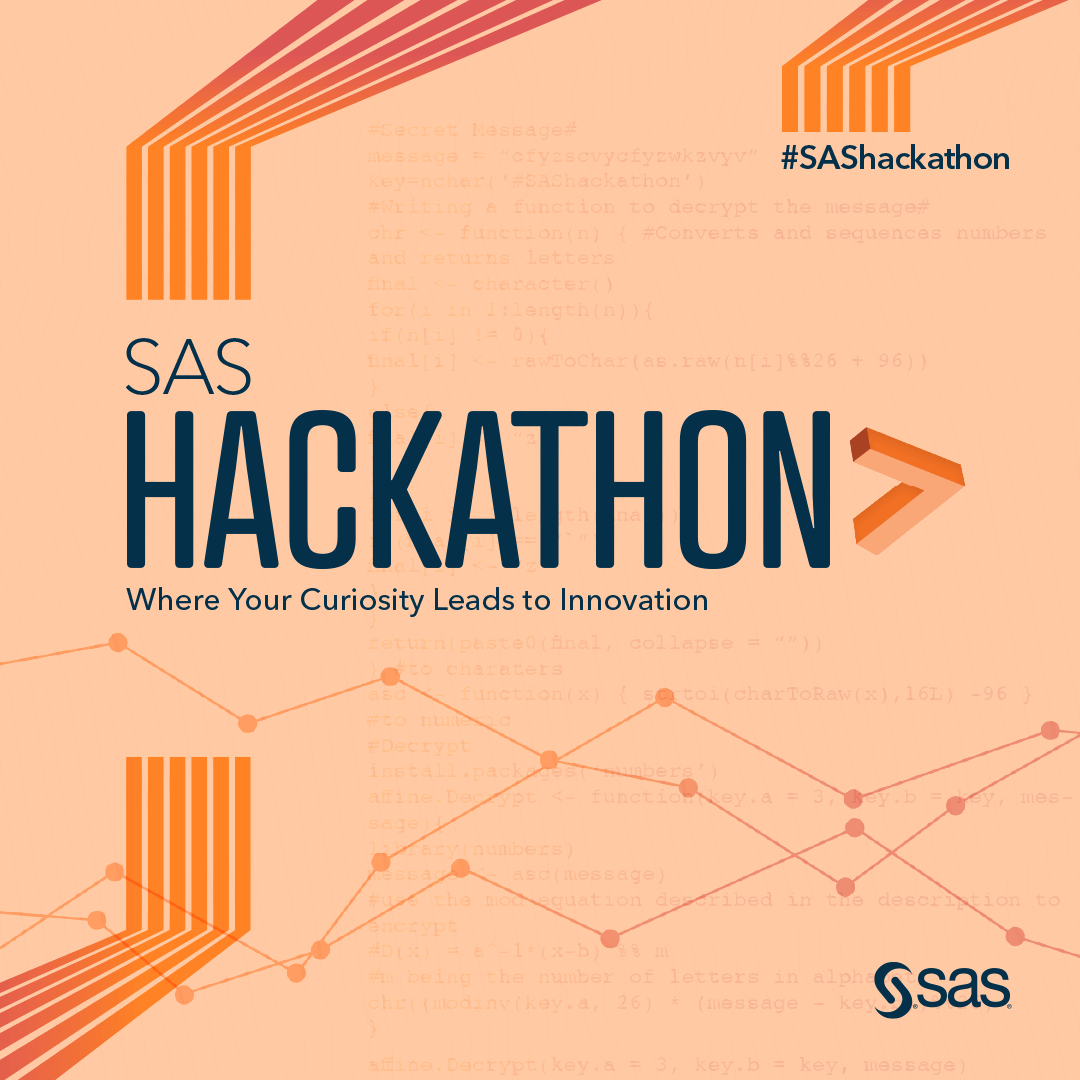During the SAS Hackathon, teams and mentors collaborate to find solutions to specific challenges. The hackathon is a win-win situation for all participants, from idea generation to the development of new technologies or solutions.
The SAS Hackathon encourages developers to collaborate on practical ideas and offers employees the chance to serve as mentors and guide teams to success. It also provides an opportunity for people to learn more about the industry, meet new people, build their portfolios and collaborate with others to achieve a common goal.
This is not a hackathon where participants compete to solve the same problem in the "best" way. Instead, the SAS Hackathon is a place where everyone brings their own problems and data aimed at solving a variety of issues.
Making deep connections through shared experiences
Mentors are indispensable to the SAS Hackathon; everyone from newcomers to experienced developers can learn something from them.
Often, the SAS Hackathon is a way for mentors to reflect on the days when they were in the shoes of the participants as competitors. It’s that full-circle moment that allows mentors to form personal connections with team members.

“I competed in and won several hackathons, even before joining SAS. Once the opportunity arose to be a mentor, I just thought that was natural for me. I’m able to connect on a deep level with participants as well as have open conversations about problems,” said David Weik, a SAS Hackathon mentor and solutions architect.
Hackathon participants can also explore entrepreneurial approaches and try SAS technologies such as machine learning, natural language processing, computer vision, data visualization and IoT all on SAS® Viya® powered by Microsoft Azure. The hack is a great learning-by-doing opportunity with access to the latest technology without launching an enterprise IT project.
At the hackathon, applying learned practical knowledge, time management skills and technical competence are critical. For participants, though, the idea of meshing those factors to reach a solution can be daunting, but this is where mentorship proves valuable.
Applying expertise to meet real-world needs
Mentors are actively applying similar skills and knowledge to find solutions to real-world problems in their roles. Some mentors are software developers. Others may be in the health care space helping to research and develop the next miracle treatments. Many have gained knowledge of other disciplines in working cross-functionally with other teams. This cache of versatile industry experts brings endless perspectives and problem-solving techniques to the event.
Mentors also get a chance to work on something that may be different from their daily routine, just like the developer teams. They get a chance to be creative and think outside of the box, which can be really fulfilling for them. Mentors like Weik also believe being a part of this event has helped them do their job.
“The aspect of the Hackathon that involves talking through ideas with developers to help them has translated into my everyday work. It’s helped me better engage with customers,” Weik said. “Having the references from the hackathon and direct experience with various teams I’ve worked with has helped me a lot, too.”
Rapid solutions with fewer hurdles
Typically, if an organization wants to do an analytics project, there are a lot of hoops to jump through, says James Caton, track lead for the SAS Hackathon and principal business development specialist. For teams, an added benefit is proving that they can execute a project in a short amount of time.

“They have to get funding and come up with a formal project plan. So, doing a formal project in any organization requires levels of approval and oversight and can take months to get anything approved. This hackathon is kind of a way to “hack” internal approval processes for projects and say hey, throughout 30 days I’m going to get access to world-class analytics and mentoring and show some results,” Caton said. “This is not going to be a full-blown project where you might get a ‘save the world’ solution, but what this [the hackathon]will do is prove the capability of the project.”
Winning a hackathon is always exhilarating but the aspect of bringing people together to solve a challenge is often the real reward. Teams are often pushed to the limit by the pressure of time and bold ideas presented. Despite inevitable ups and downs from the ideation to completion process, teams often form tight bonds that develop into genuine connections and friendships.
Walking in the customers' shoes
For SAS, the added benefit is the chance to have mentors spend time with participants who are often customers and understand their successes and concerns with using analytics and AI.
“I think that’s making SAS better consultants, salespersons and technicians because we are moving out of our comfort zone and stepping into our customers’ shoes,” Caton said.
It’s always great to learn new concepts, celebrate new hackers and be in an inclusive, energized environment that fosters innovation. For those who might be on the fence about participating in any way, Weik and Caton say that you don’t have anything to lose.
“The barrier to entry couldn’t be any lower and once you’re involved, you will easily make connections with your team. Teams hit problems together and nothing builds a team like hitting a wall and breaking through it together,” Weik said.
“This is a no-pressure opportunity to jump in and try something innovative. There’s a structured support mechanism and mentoring aspect that invites people to use leading technologies to solve a problem,” Caton added.
Bigger every year
The more than 1,000 individual applicants for this year’s hackathon prove that many more people are taking notice that this is an incredible learning opportunity to be a part of.
AI and analytics have changed lives. The hackathon is a good way to bridge those technologies and others with new ideas that can help facilitate further societal change.
Sharing expertise and experience is a two-way street. All in all, no one leaves a hackathon without growing intellectually.

